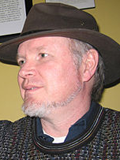Tim Bray, Sun Microsystems

Early life
Tim was born on June 21, 1955 in Alberta, Canada. He grew up in Beirut, Lebanon and graduated in 1981 with a Bachelor of Science (double major in Mathematics and Computer Science) from the University of Guelph in Guelph, Ontario. Tim described his switch of focus from Math to Computer Science this way: "In math I?d worked like a dog for my Cs, but in CS I worked much less for As - and learned that you got paid well for doing it."Fresh out of university, Tim joined Digital Equipment Corporation in Toronto as a software specialist. In 1983, Tim left DEC for Microtel Pacific Research. He joined the New Oxford English Dictionary project at the University of Waterloo in 1987 as its manager. It was during this time Tim worked with SGML, a technology that would later become central to both Open Text Corporation and his XML and Atom standardization work.
Entrepreneurship
Waterloo Maple
Tim Bray served as the part-time CEO of Waterloo Maple Inc. during 1989-1990. Waterloo Maple is the developer of the popular Maple mathematical software.Open Text Corporation
Bray left the new OED project in 1989 to co-found Open Text Corporation with two colleagues. Open Text was the commercialization vehicle for the high-performance search engine employed in the new OED project.Tim recalled that in 1994 I heard a conference speaker say that search engines would be big on the Internet, and in five seconds all the pieces just fell into place in my head. I realized that we could build such a thing with our technology. Thus in 1995, Open Text released the Open Text Index, one of the first popular commercial web search engines. Open Text Corporation is now publicly traded on the Nasdaq under the symbol OTEX. From 1991 until 1996, Tim held the position of Senior Vice President - Technology.









